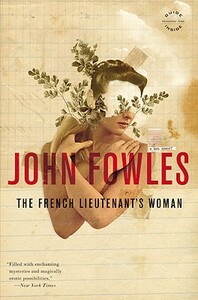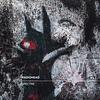Take a photo of a barcode or cover
Read this for my Global PoMo class. I liked it the most of any book this quarter bc it read like a Victorian novel. The ending made me feel like I felt when I read The Age of Innocence.
It holds to its reputation, meaning that it was quite a pleasing read that has reminded me of Italo Calvino` s If on a Winter`s Night Tale because it is a story that shows its lab.
You won`t get too invested in the story of those two protagonists because you will be swayed by the narrator`s voice that will do quite a show through it all in explaining the ways of the characters and their unfolding of events.
An experimental reading.
You won`t get too invested in the story of those two protagonists because you will be swayed by the narrator`s voice that will do quite a show through it all in explaining the ways of the characters and their unfolding of events.
An experimental reading.
This was amazing but I can't give it five stars because of my own inadequacies. It was completely unexpected because I had (horror of horrors) no idea who John Fowles was and in which period he lived, but instead, only noticed vaguely that the word 'classics' was imprinted on the cover, and that the style seemed Victorian... until the writer actually spoke in the text! I am groping for a term here - it's not breaking the fourth wall (because this isn't a play being enacted onstage), nor breaking the third wall (because it isn't the character who speaks). I now have to flagellate myself for being a bad former English major... help?
This, I then realised, is a postmodern Victorian novel. Fowles the genius researcher discusses Victorian society and mannerisms and tropes in marvellous ways, examining his characters against the context of Darwinism and the advent of the modern age. Charles, Ernestina and Sarah - and even the 'domestics', Sam and Mary - are swept up in the tide called into being by his omnipotence, and whirl about helplessly for the most part, even though he claims that their free will exceeds the limits of his control. Charles is the most pitiful as he is the most tested - the Victorian man struggling with his own sexual yearnings and guilt, trapped by the conventions of his time. Strangely, the women seem more independent, having recourse to the law, and being able to recede into the shadow of enigma that stereotypes about their gender make possible.
This is not an easy novel to read, and this is where the part about my own inadequacies comes in. I feel that I just don't know enough about the Victorian period to be able to pass any sort of judgment on how scathing/accurate/amusing Fowles's treatment of it is. The multiple footnotes left my head whirling. And finally - the very things that attract me to Victorian literature - the depth of restrained emotions, the wonderfully meaty plot - are clinically dissected here, leaving me feeling (and probably looking) non-plussed... especially when it came to the ending!
I would love to study this in class, to discuss it with people who are more knowledgeable than I am. I wonder what Su-Lin would make of it? In any case, I am definitely going to read [b:The Collector|243705|The Collector|John Fowles|http://photo.goodreads.com/books/1327886592s/243705.jpg|1816452] and [b:The Magus|16286|The Magus|John Fowles|http://photo.goodreads.com/books/1166720342s/16286.jpg|1816475] because Fowles is fascinating.
This, I then realised, is a postmodern Victorian novel. Fowles the genius researcher discusses Victorian society and mannerisms and tropes in marvellous ways, examining his characters against the context of Darwinism and the advent of the modern age. Charles, Ernestina and Sarah - and even the 'domestics', Sam and Mary - are swept up in the tide called into being by his omnipotence, and whirl about helplessly for the most part, even though he claims that their free will exceeds the limits of his control. Charles is the most pitiful as he is the most tested - the Victorian man struggling with his own sexual yearnings and guilt, trapped by the conventions of his time. Strangely, the women seem more independent, having recourse to the law, and being able to recede into the shadow of enigma that stereotypes about their gender make possible.
This is not an easy novel to read, and this is where the part about my own inadequacies comes in. I feel that I just don't know enough about the Victorian period to be able to pass any sort of judgment on how scathing/accurate/amusing Fowles's treatment of it is. The multiple footnotes left my head whirling. And finally - the very things that attract me to Victorian literature - the depth of restrained emotions, the wonderfully meaty plot - are clinically dissected here, leaving me feeling (and probably looking) non-plussed... especially when it came to the ending!
I would love to study this in class, to discuss it with people who are more knowledgeable than I am. I wonder what Su-Lin would make of it? In any case, I am definitely going to read [b:The Collector|243705|The Collector|John Fowles|http://photo.goodreads.com/books/1327886592s/243705.jpg|1816452] and [b:The Magus|16286|The Magus|John Fowles|http://photo.goodreads.com/books/1166720342s/16286.jpg|1816475] because Fowles is fascinating.
emotional
mysterious
sad
slow-paced
Plot or Character Driven:
A mix
Strong character development:
Complicated
Loveable characters:
No
Flaws of characters a main focus:
Yes
Read probably 17-18 years ago, in Romanian. No rating because I can’t remember what I thought of the book. I think I was disappointed in it for some reason. Should I try to reread it someday? In The original English version this time?
dark
emotional
mysterious
reflective
tense
medium-paced
Plot or Character Driven:
A mix
Strong character development:
Complicated
Loveable characters:
Complicated
Flaws of characters a main focus:
Yes
dark
emotional
mysterious
reflective
tense
medium-paced
reflective
medium-paced
Plot or Character Driven:
Plot
Strong character development:
No
Loveable characters:
No
Diverse cast of characters:
No
Flaws of characters a main focus:
Yes






